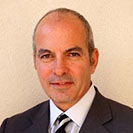For the Wealth Gap to Close, Certified Public Accountants, Enrolled Agents, and Other Tax Professionals Must Emulate the Family Office Model
“The rich get richer.” You’ve heard that your whole life, and probably because it’s true: US billionaires saw their collective wealth rise 62% in just the first 18 months of the Pandemic. Juxtapose that statistic with this from Oxfam in the Spring of 2022: “The pandemic wiped out years of progress in reducing poverty and caused economic inequality to spike…99% of humanity are worse off as a result.”
What are the uber-wealthy doing that your clients aren’t? Although exact numbers are difficult to come by, one thing the super-rich do is employ family offices to oversee and protect their wealth. Credit Suisse, which consults with family offices, has estimated that there may be as many as 10,000 single-family offices in the USA.
Because family offices are among the most private organizations in the world and have no centralized regulatory or reporting structure, we can’t be sure how many there are. But we can observe that the wealthiest Americans have long been associated with family offices. And we know they are getting a lot richer.
For the growing wealth gap to close, the methods and practices of the richest families will need to democratize. Yes, family office services for the very wealthiest include lifestyle support that isn’t relevant to everyone else’s needs— most don’t need their jet waxed – but anyone would benefit from having a team dedicated to their best interests.
There is very good news: trends and technologies now make the family office model available to millions more families. And for the Certified Public Accountant or Enrolled Agent, the news is very good, indeed: the family office model virtually requires them in key, client-facing roles.
The Family Office Formula Solves for the Tax Professional and the Client
So, why do family office clients do well, even during a pandemic? Perhaps most importantly, it’s because they put a massive emphasis on after-tax growth. After income tax, of course, but also after capital gains and, crucially, after estate taxes. Investment management proceeds in the proper order: taxes first, then math. Tax policy informs investment policy. And investment policy is made using strictly meritocratic, objective decision-making.
It’s also true that clients of family offices benefit from the coordination and cooperation of a team of experts in asset, risk, and wealth management. The absence of conflict among these professionals, who aren’t competing for commissions or fees, typically produces an objectively superior result for the client’s family.
This combination of conflict-free, coordinated advice delivered by true fiduciaries (and almost always involving a CPA or EA) would likely sound pretty wonderful to just about anyone. It starkly contrasts the confusing and conflicted world of financial product sales. Ask your clients if it sounds good, and we think you’ll hear a resounding “yes!”.
Note that we haven’t mentioned what family offices invest in. Most families come to their family office with wealth created by the concentrated ownership of a company or real estate. But that corpus of wealth is only part of the story. The family office will need to have the balance of their assets managed, and you may be surprised how modest the expected and the actual returns are on the asset classes often thought to be beyond the access of most families.
The Family Office Director, Typically a Tax Professional, Has More Impact than the Investments Themselves
Hedge funds have enjoyed an almost mythical reputation for creating fabulous wealth. And that may be true for the hedge fund manager. That 2% annual fee plus 20% of the profits arrangement can really add up for the manager of a large fund. But for the clients, hedge funds are, as their name implies, really more about managing risks than they are about creating outsized returns.
In April of 2022, Motley Fool reported, “The average annual return (from 2011 through 2020) on the S&P 500 was 14.4%, or almost three times higher than the 5.0% average return for hedge funds”.
You can also rule out real estate as the magic bullet for family offices. The compound annual growth rate for [residential real estate] in the USA between January 1991 and December 2021 was just 4.3%.
“Well then, it must be the private equity,” you may say. According to familyofficehub.io, family offices make substantial allocations to private equity: 7% to funds and 14% in direct investments. One-fifth of all assets to private equity is substantial; however, in the 20 years from July 1999 through June 2020, PE produced average annual returns of 10.48%. Not exactly get rich quick.
It’s clear that how family offices are managed and who directs strategy is far more important than what they invest in. We suggest that is true across all wealth cohorts – everyone could benefit from a taxes-first, conflict-free wealth management approach. This is why the tax pro is in an ideal position to lead the democratization of the family office.
The Tax Pro as Family Office Director: The Potential for Better Decision Makers Making Better Decisions for Their Clients
For the entrepreneurial tax pro who values their independence and prefers to own their own firm, the idea of owning a family office may seem fantastical. Think of the infrastructure and organizational challenges. Then consider the legal and compliance hurdles. Finally, how would they approach the communications and branding strategy necessary to make the change?
For these reasons, 75% of CPAs have stayed in their tax compliance lanes and made no moves into the broader financial services space. Now, however, CPAs have another and far more attractive option to starting their own firm: partnering with a multi-family office provider.
The Turnkey Multi-Family Office Charter Can Provide Tax Professionals With Increased Revenue and Higher-Quality Clients
Financial Gravity’s Turnkey Multi-Family Office Charter could provide a “Goldilocks” solution for the tax pro: they remain in their position as a client-facing tax expert and bring their gimlet-eyed discipline to the process of decision-making, and their charter partner does everything else. They provide the technology, business development, operations, service, and marketing support services and share revenues with the tax pro.
Under this model, the CPA’s business benefits from new and diversified revenue streams. They verticalize their relationships with the clients they choose to work with, and the valuation of their firm reflects the durability not only of the revenues but the expected growth of assets under management over time.
Working with a Turnkey Multi-Family Office Charter could be the holy grail for the tax pro. A smaller but more significant and profitable client base, relief from the intense pressures of tax season, and an engine for valuation growth. Best of all, perhaps, is the opportunity to help their clients benefit from the model enjoyed by America’s wealthiest families.















